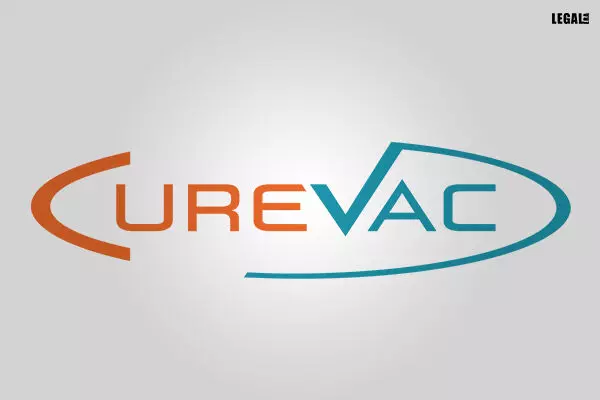- Home
- News
- Articles+
- Aerospace
- AI
- Agriculture
- Alternate Dispute Resolution
- Arbitration & Mediation
- Banking and Finance
- Bankruptcy
- Book Review
- Bribery & Corruption
- Commercial Litigation
- Competition Law
- Conference Reports
- Consumer Products
- Contract
- Corporate Governance
- Corporate Law
- Covid-19
- Cryptocurrency
- Cybersecurity
- Data Protection
- Defence
- Digital Economy
- E-commerce
- Employment Law
- Energy and Natural Resources
- Entertainment and Sports Law
- Environmental Law
- ESG
- FDI
- Food and Beverage
- Gaming
- Health Care
- IBC Diaries
- In Focus
- Inclusion & Diversity
- Insurance Law
- Intellectual Property
- International Law
- IP & Tech Era
- Know the Law
- Labour Laws
- Law & Policy and Regulation
- Litigation
- Litigation Funding
- Manufacturing
- Mergers & Acquisitions
- NFTs
- Privacy
- Private Equity
- Project Finance
- Real Estate
- Risk and Compliance
- Student Corner
- Take On Board
- Tax
- Technology Media and Telecom
- Tributes
- Viewpoint
- Zoom In
- Law Firms
- In-House
- Rankings
- E-Magazine
- Legal Era TV
- Events
- News
- Articles
- Aerospace
- AI
- Agriculture
- Alternate Dispute Resolution
- Arbitration & Mediation
- Banking and Finance
- Bankruptcy
- Book Review
- Bribery & Corruption
- Commercial Litigation
- Competition Law
- Conference Reports
- Consumer Products
- Contract
- Corporate Governance
- Corporate Law
- Covid-19
- Cryptocurrency
- Cybersecurity
- Data Protection
- Defence
- Digital Economy
- E-commerce
- Employment Law
- Energy and Natural Resources
- Entertainment and Sports Law
- Environmental Law
- ESG
- FDI
- Food and Beverage
- Gaming
- Health Care
- IBC Diaries
- In Focus
- Inclusion & Diversity
- Insurance Law
- Intellectual Property
- International Law
- IP & Tech Era
- Know the Law
- Labour Laws
- Law & Policy and Regulation
- Litigation
- Litigation Funding
- Manufacturing
- Mergers & Acquisitions
- NFTs
- Privacy
- Private Equity
- Project Finance
- Real Estate
- Risk and Compliance
- Student Corner
- Take On Board
- Tax
- Technology Media and Telecom
- Tributes
- Viewpoint
- Zoom In
- Law Firms
- In-House
- Rankings
- E-Magazine
- Legal Era TV
- Events
CureVac obtains patent lawsuit against BioNTech

CureVac obtains patent lawsuit against BioNTech
• CureVac requests "appropriate recompense" for its mRNA innovation
• Will not attempt to halt the sale and distribution of COVID vaccines.
• BioNTech asserts its work is unique and will support it
Amid the intense race to create a coronavirus vaccine, CureVac (5CV.DE) has launched a patent action in Germany suing BioNTech (22UAy.DE) over the latter's use of mRNA technology. This is one of the first instances of a firm going to court that is known to have occurred.
The German-based biotech firm says that BioNTech and its two subsidiaries violated its proprietary information and demands "appropriate recompense" from them.
Chief Executive Franz-Werner Haas did not rule out further legal proceedings against BioNTech collaborator Pfizer (PFE.N) or mRNA vaccine producer Moderna when questioned during a media teleconference (MRNA.O).
BioNTech claimed that its work was unique. In a statement, BioNTech stated, "We will firmly protect it against all charges of patent infringement."
mRNA technology has been the subject of more than 20 years of research at CureVac, some of which was utilized by BioNTech and Pfizer in the creation and marketing of their Comirnaty coronavirus vaccine.
According to Haas, "several years of study have also contributed to the effectiveness of the mRNA vaccines and made that achievable." "From our perspective, respecting the associated ownership rights is self-evident."
Utilizing mRNA technology, vaccines and medications direct human cells to make beneficial proteins. MRNA, long regarded as a mysterious technology with hazy future prospects, saw usage for the first time when it was included into vaccinations during the pandemic.
CureVac, which reported a 2021 loss of 412 million euros ($423 million), did not find Haas' offer to be a suitable reward.
With the pandemic fading, BioNTech anticipates vaccine sales of up to 17 billion euros ($17.5 billion) in 2022, down from 19 billion euros in 2021.
According to CureVac, no legal action would be taken, nor was an injunction sought to prevent the manufacture, sale, or distribution of the vaccine.
When the epidemic was at its worst, CureVac would not have thought to bring up patent infringement; but, now that the situation has improved, CureVac felt the time was right to do so, as stated by Haas.
Following the news, shares of BioNTech dropped as much as 4.9percent before recovering and trading 2percent t higher at 1354 GMT. CureVac, a German company, had its shares trade 1percent higher after earlier rising as much as 4.8 percent.
CureVac's complaint was filed in the Duesseldorf court, which declined to comment.
To establish CureVac's fair contribution in product promotion and marketing in Germany and how it would be properly valued, Haas was circumspect about the possibility of further legal action.
When asked if he would rule out suing Moderna, he responded: "Nothing is being ruled out. We are seriously examining it."
More than 6.3 million people have died due to COVID-19 pandemic, which started in China. This has sparked a race among pharmaceutical companies to be the one to create a vaccine, with BioNTech and Pfizer eventually taking the lead in the Western world.
Following 2021's unsuccessful attempts to commercialise a COVID-19 vaccine, CureVac increased its collaboration with partner GSK (GSK.L) to develop superior vaccines.
In April, 2022 CureVac and GSK announced that pre-clinical mouse trials had demonstrated the high efficacy of their second-generation vaccine candidate, which targets two recent COVID-19 mutations.


